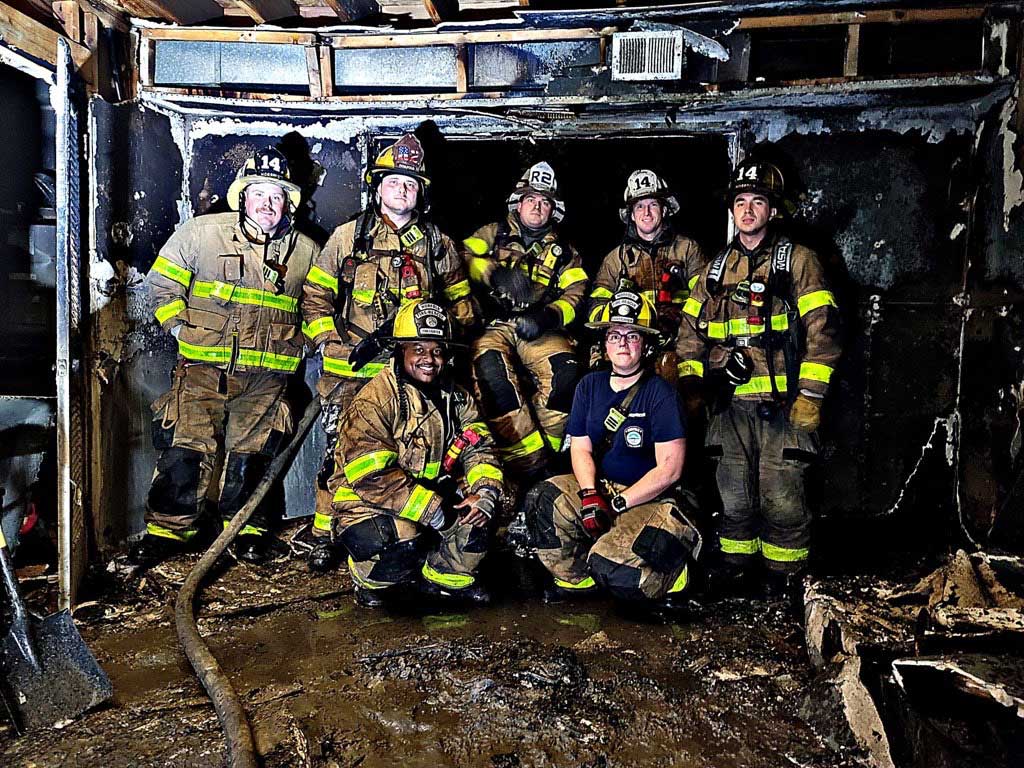
Part 2
All photos by author
Our previous installment considered the importance of building social cohesion among your firefighters. This part will review the need for company officers to cultivate task cohesion, as well.
FirefighterNation: Unit Cohesion: Harnessing the Ultimate Killer of Low Morale
Building Task Cohesion
So, what is task cohesion? Task cohesion refers to how well your crew members work together to complete a task or given objective, whether on the fireground or otherwise.
The first thing that you must do as an officer is to be able to clearly articulate the mission and goals. When things go awry, everything goes back to the mission. It’s why we exist as a fire service. It is why you exist as a fire department. I would imagine just about all of our mission statements have something in there about service. With service comes sacrifice. The sacrifice of our own personal comfort over that of the mission and our team’s progression. All of us volunteered for this job, whether you continue to do so now without compensation or are a part of a paid department. You chose to take the oath and provide a high level of service. I have yet to see a poor soul being dragged up on stage and their hand forced in the air. As firefighters, we swore to protect life and property and you need to make sure you communicate this from time to time to keep everyone focused on their sense of purpose (Photo 1) This is done through your own behavior, actions, and mindset. Be clear about where you want to take your company. Do you want to be the best damn fire department in the nation? Do you want to be the best company in that department? I hope so, but you don’t get there through happenstance. It takes hard work and commitment to something bigger than yourselves. It takes a laser focus on the growth of the team, their individual goals, and consistent, realistic firefighter training.
- The Importance of Realistic Firefighter Training
- Realistic Firefighter Training: ‘Do It’ Drills
- Striving for Success Is Not an Accident
- On the Line: Pursuing Perfection and Catching Excellence
And training is vital. As a company officer, one of the most critical elements of being able to support the mission of your fire department is providing training to your firefighters. As a young firefighter I remember people telling me: “When the brass hits, there are no excuses.” When the brass hits and there is a mother and child in fear for their lives at a second-story window, that is not the time to tell yourself we should have trained more on ground ladders. When you company is about to cross the threshold and make a push down the hallway, have you prepared them to be good engine company firefighters? Maintain a consistent training regimen in your station focused on the constant chase of the flawless application of basic skills. It’s the basics that, if we are unprepared, make us look like fools. It doesn’t matter if you are the busiest or the slowest company in your organization. Success will favor the prepared. The public is counting on us and we can’t let them down. (2,3).
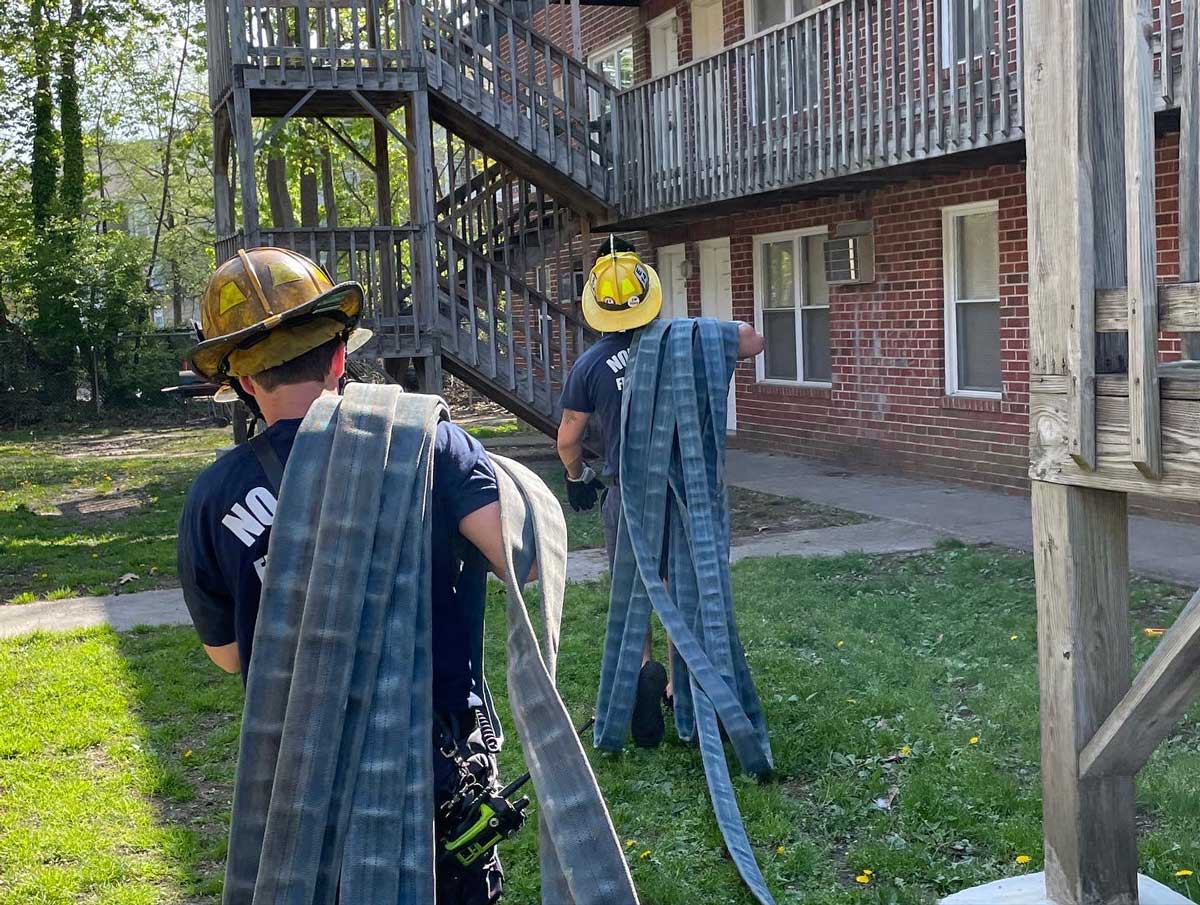
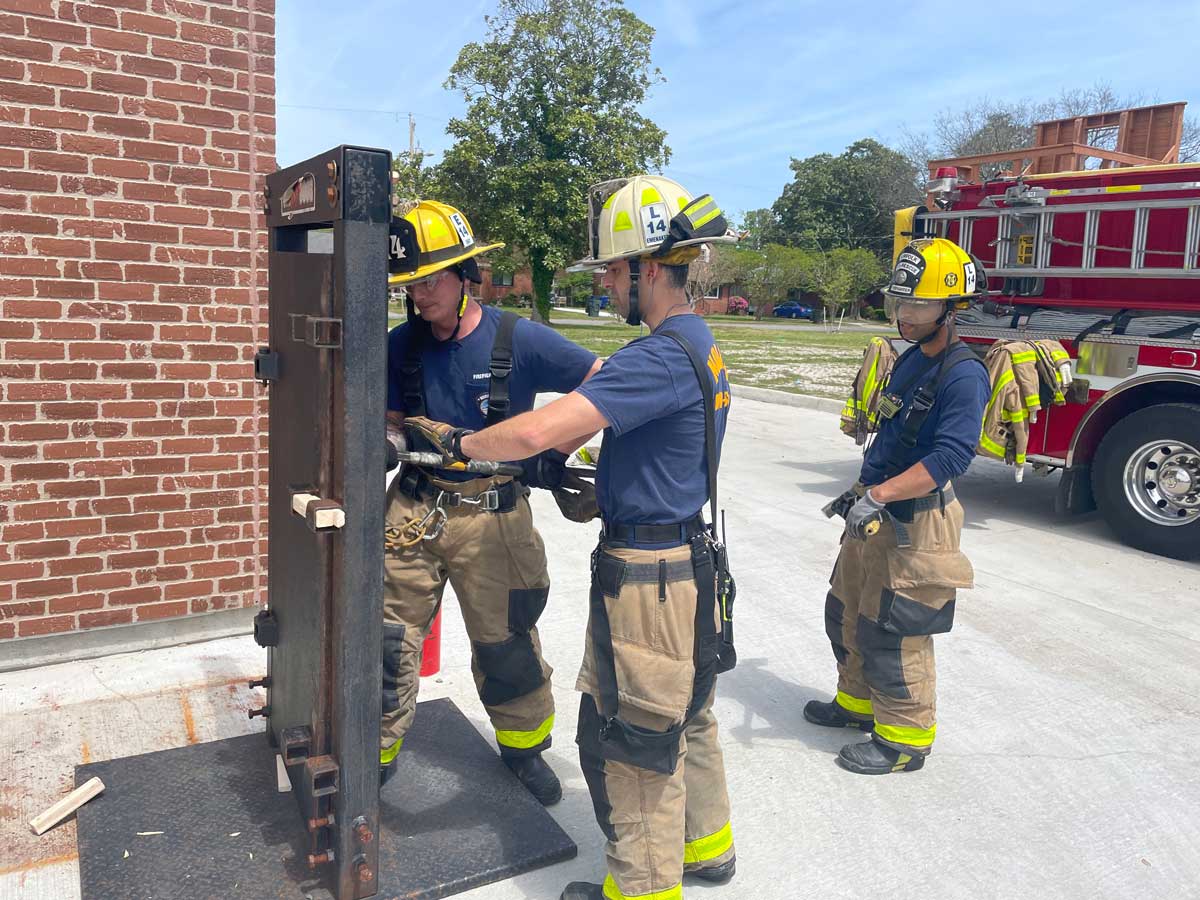
I am a firm believer that the ability to create high morale in a fire department rests largely on the shoulders of our company officers. One of my mentors told me one day: “If the firehouse is right, the department is right.” I truly believe in this and try to remember it every day am on shift. Your positive outlook and attitude as an officer will go a long way. You make a decision every day to model positive behavior or be negative. I am not here to say that they aren’t real issues out there. I am not here to say that the existence of issues that bring down morale and cohesion in your own departments is something you should hide from your crews. What I am saying is that there is power in positivity. Positive outlook and behavior do not reject the significance of the issues our departments face, but rather emphasizes the ability to create a climate where people thrive! It creates an environment focused on the team, people, results, and excellence. Your positive attitude will have an amplifying effect on others—and so will a negative one. What decisions are we making that create a positive environment for others and ultimately the department. Far too often we look up the chain of command to solve these problems. Many, not all of course, can be fixed by taking a good hard look at ourselves and asking the honest question: What am I doing do create strong unit cohesion in my firehouse?
Company Pride
Take pride in your team and make that pride visible. It doesn’t matter if you are assigned to Station 1, Station 5, Station 14, or any other unit that exists in your fire department. If you are the officer of that firehouse, be proud of it! Be proud of its history and the members that make up those companies that sit inside those four walls. Wear those department and unit patches proudly! Firefighters must be allowed to show pride in what they do and be able to display it in a variety of ways. It’s easy to recognize a proud group of firefighters when walking into their firehouse. They are positive, energetic, and motivated. It is no secret that those who feel proud of their teams and their organizations are much more likely to be happy at work than those who are not. Pride starts with you as the company officer constantly reminding your firefighters just how lucky they are to be in an organization that has mission of serving the public and having an opportunity to be part of something bigger than us (4).
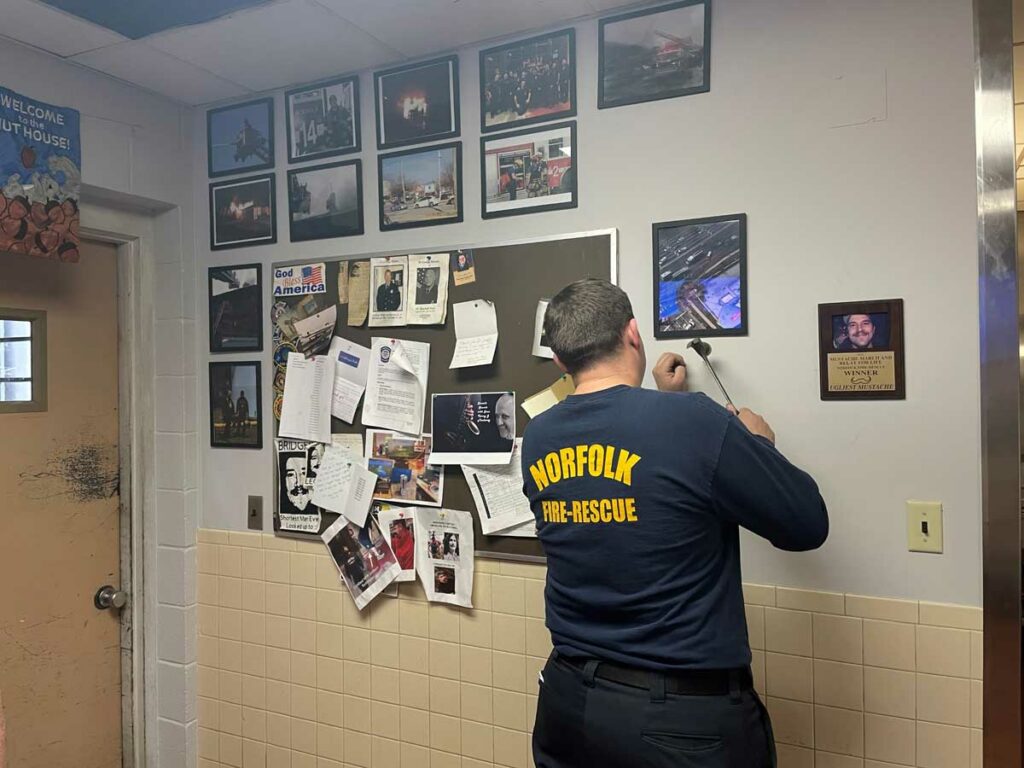
Housework and Halligans: Pride of Ownership in the Fire Service
Open Communication
Be transparent and keep the lines of communication open. Keeping your firefighters in the dark is one of the biggest contributors of lack of trust. Do you have to give insight into every decision that you make as an officer? No, but in many situations, its helps to better understand why these decisions were made. Firefighters want to work for an honest boss. How many times have you been on the transfer list, or maybe you were the one that had to make a transfer, and the reason you gave was: “Chief just said we had to make some moves?” If there is a reason you moved someone off the team, be up front about it. Sometimes we are like the third-grade playground with the secrets we keep. I had a firefighter whose name continuously came up on the list of transfers when I had to give up names. I can remember sitting down with this firefighter and being brutally honest with him. I explained that when I must transfer someone and I am in between a couple names I ask myself: who brings the most value to the team? In this case, I explained that it wasn’t him and why, and this led to some further conversation that was very productive. I was open and honest about my decision and that will carry more respect than making up some other excuse. Be a good medium when it comes to communication. Sometimes downloading the information and orders from above and delivering it to the firefighters is a difficult thing to do as an officer. Once again, a little “why” goes a long way. Perhaps there is an unpopular policy or general order that has come out. If you sit around the galley table and say things like: “OK, its time to go over this stupid new policy,” consider: What have you said about every other policy? What have you said to them about the ones that you believe in and support? You have implied that they are all stupid. Try explaining why the policy exists and give some background on why the specifics of it were implemented. The last part of communication is simply being approachable and being a good listener. Firefighters should feel comfortable bringing issues to your attention. They need to be able to count on you to solve some of their problems and should not feel like they are inconveniencing you every time they reach out for help.
*
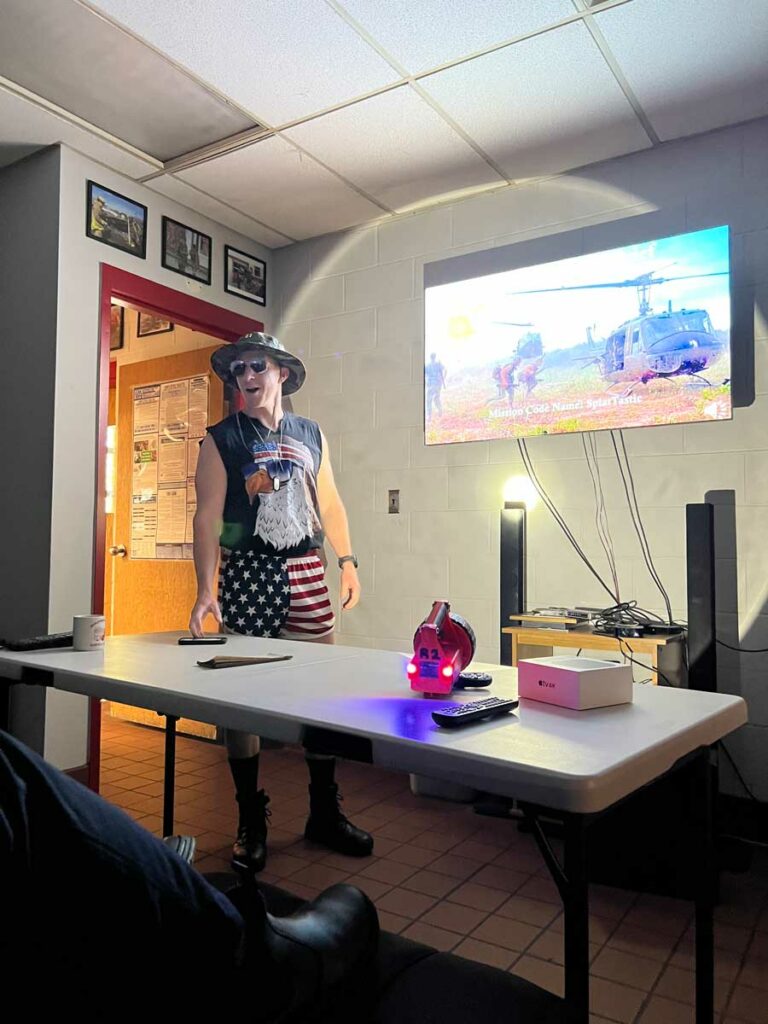
Don’t assume that just because firefighters spend many hours together that cohesion will automatically exist and that we will all be unified. It should be easy to understand this. Many firehouses are full of firefighters that spend a third of their lives with one another, wear the same patch on their arms, but fail in having cohesion or a sense of purpose when they show up to work. That time together gives you opportunity, but that is all. It gives you as the officer the opportunity to get closer to your team. It allows you to actively engage them and empower them. It allows for meaningful conversations and a canvas to create and maintain trust. Like our personal relationships outside the firehouse, it takes intentional effort to build those connections and help your firefighters function effectively. My final closing piece of advice is: have fun! Drop your shoulders and relax a little bit. Don’t take yourself too seriously or the good times right under your nose will simply pass you by. There should be a heathy dose of laughter echoing through your firehouse. These times we are in now will be the good old days before we know it. Make every day count. Make every attempt to create a fun atmosphere at work while yet being mission focused. A healthy blend of both is very important (5).
Look, I haven’t got all the answers, and if I am being honest, I struggle some days myself. I struggle to find the words or the reassurance to help lift my crew’s spirits and their morale. I struggle sometimes to explain to them why they need to keep making the push. I don’t know if what I say or what I do helps, but this I do know: Creating conditions of high morale is attainable. I am far from perfect and many of the things I have discussed above were learned through failure. They were learned from making the wrong decision or treating someone the wrong way. All of this is simply my advice to you in hopes to make you a better firefighter and a better company officer today than you were yesterday. You have a lot of responsibility as a company officer. Among the hundreds of things that you must be good at, remaining focused on building that unit cohesion and high morale should near the top. It’s not always easy, but I can guarantee you it is worth it.
Jarrod Sergi is a captain with Norfolk (VA) Fire Rescue assigned to an engine company. He has had previous assignments as a ladder company lieutenant and fire academy coordinator. He also serves as an adjunct state instructor for both the Virginia Department of Fire Programs and the National Fire Academy focusing on Mayday, strategy/tactics, and high-rise operations. He is an instructor with Real Fire Training LLC. Prior to working for Norfolk, he served in the United States Navy as a damage controlman and a search and rescue swimmer. He is a graduate of the National Fire Academy’s Executive Fire Officer Program.

